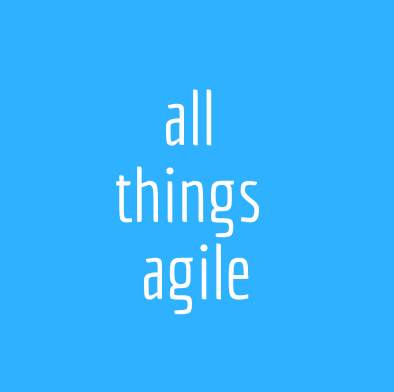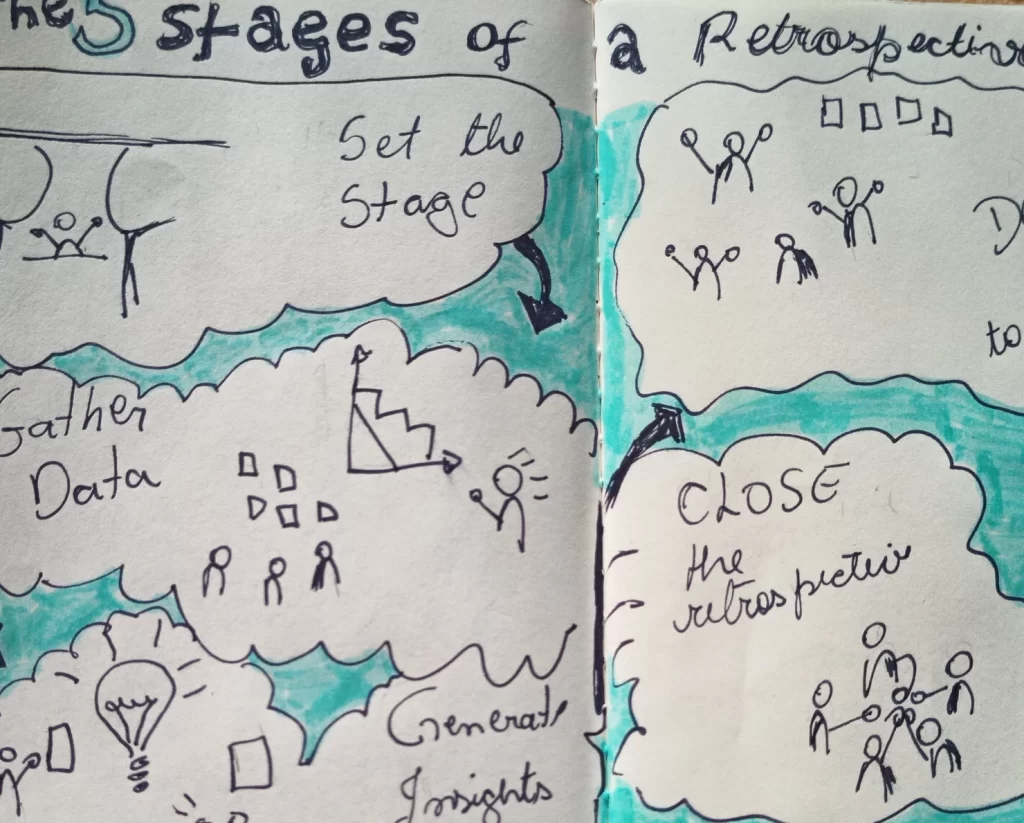
As you might have gotten already from this post I believe every Scrum Master should learn agile coaching skills.
When I say that I’m never met with bland reactions. It’s always enthusiasm or outrage. Enthusiasm because people see a light in the end of the tunnel of the tight box of scrum mastering. Outrage because many believe this is obvious and in fact they get bothered by my saying that it needs spelling out.
And let me tell you: it needs spelling out.
Every scrum master should learn agile coaching skills if they want to be effective at helping teams and organizations succeed with Agile.
I am a Scrum Master who learned agile coaching skills
When I was a Scrum Master in 2012, Scrum had a few more rules than it has now. The framework got simpler, but any Scrum Master training was about backlog, sprints, estimation. While you would have some amazing teachers out there, the reality is that between the Scrum Master training AND the asks of organizations, a lot of the focus was on the how and the techniques. And on teams.
In my own journey I felt so ineffective and stuck in a box that I started looking elsewhere. At 2013 I discovered the Agile Coaching competency framework and a lot of things started to make sense. I started seeing that to:
- It’s not just about the teams.
- It’s not just about Scrum.
- It’s not about telling people what to do.
- It’s not about compromising humanity in workplaces.
Ultimately, I got hooked on Agile Coaching (and coaching in general) because coaching is about growing people so that they can grow their organizations through dialogue and collaboration.
The framework doesn’t matter, culture does
I am a big proponent for Scrum Masters to evolve beyond Scrum and frameworks and adopt the stances of agile coaching. And because of that I go as far as propose they no longer be called Scrum Masters. Who cares if you master Scrum? Or any framework for that matter? People want your help to solve problems. The tools of the trade can be many. And all frameworks are replaceable.
From my experience as a coach and coaching other coaches, most effective team and organizational coaches will use a variety of Agile tools to support people’s understanding on the why and the how of agile change. I’d say it takes you one or two days to be able to teach a team how to operate in Scrum in a workshop.
And that is not diminishing the framework. It’s because it’s really simple!
So you gave the team a Scrum workshop. They will leave happy and hopeful. And as soon as they start operating in Scrum, they will face issues and impediments. The problems they will face have nothing to do with Scrum.
The same is true with Kanban. Or SAFe. Or XP. Any of these methods and frameworks when put in practice will all make the organization culture surface. And through that people will stumble on issues of prioritization, definition of value, the impact of company values misaligned with company policies. New roles that now pose a threat to individual status in the organization. The comfort of old known norms versus the realization that change keeps knocking on the door. Resistance, fear, lack of clarity.
The human skills of an Agile Coach
A lot of human skills are required for dealing with humans. That simple. And in particular, here is some of what is required to bring organizational change even at team level: navigating conflict, being emotionally intelligent and helping others be emotionally intelligent. Coaching, facilitation. The constant creation of dialogue and looking beyond compromise towards integrative solutions (win-win). And less about frameworks and more about how to design experiments for change.
Not to mention frameworks are for us to learn from them, not to learn and stick with them. What I mean by that is: be prepared because your teams will have problems with doing the Daily Scrum and making them last 15 minutes. What should you do? Insist on 15 minutes or shift? Sometimes it might make sense to insist, because with every new thing we have an adaptation period, and we end up avoiding practice of whatever initially. I sure remember trying to do meditation every day…
Teams that lack discipline in general always want a way out. Teams who don’t understand the benefit of practices will want a way out. As a coach you should seek clarifying the opportunity for growth for your team. But sometimes certain practices just don’t fit, and we then investigate different opportunities. You can’t just be stuck on what Scrum says in the Scrum Guide.
How can you choose what to do in a situation like that? You will need to have experience with running similar practices. In the agile coaching framework this is:
Scrum master as an agile practitioner.
You will need curiosity and mechanisms to explore with people what they would wish instead. In the agile coaching framework this would be:
Scrum master as a coach.
Also, ability to make people discuss and agree on how to move forward despite differences. That, in the agile coaching framework would be:
Scrum master as a facilitator.
Right here I just named 3 stances of agile coaching for you.
I would also mention that many years back Barry Overreem did an amazing job using both the agile coaching competency framework AND the book of Lyssa Adkins, Coaching Agile Teams, to craft what is commonly known today as the 6 stances of a scrum master. He was the first known scrum master making very explicit the need for scrum masters to move past technicalities. And all his amazing work with The Liberators, his company, reflects that.
Now that we covered some agile coaching stances, I invite you to investigate some of the skills you will benefit from enormously and all of them, while not exclusive from agile coaching, are guaranteed to be found in among the best agile coaches. And I don’t wish for you anything short of the best!
So here are the agile coaching skills I think any Scrum Master should learn and develop.
Communication
I am not talking any communication skills. I refer to the specific communication skills: the fact that you will need to speak differently with developers and with managers. And that is so because they care about different things. They know different things. They have different points of view, face different problems, and respond to different accountabilities in an organization.
Stakeholders are many and you will need to operate in several different hierarchical levels in the organization to be able to help people move forward with agility, with adaptability. Your language and attitude will have to adapt.
But I will also call out the need to become sharper in communicating visually, concisely all in name of transparency and inclusion of all voices.
Conflict navigation
Disagreement is opportunity. You need to truly believe that to help people successfully navigate conflict. Difference of opinions that are not tended to can escalate and become hairy conflicts that are much harder to address and are more emotional in nature. You will need a ton of emotional intelligence and techniques to know when you can intervene and when it actually makes sense that you do nothing.
And lastly, it’s not simply about you solving for your team(s), but rather creating capability within the team for them to grow and know how to agree or disagree moving forward.
Facilitation
Facilitation is the skill of helping people have meaningful conversations. Those are conversations that achieve a goal, conversations where a decision is made, where knowledge is properly transferred, etc. Through facilitation what you do is help others step out of their crystallized positions and create dialogue.
It’s not easy to see things from other people’s lenses. It’s even harder to stay neutral and look for the best way to serve teams and groups in having structured yet creative conversations. That is what you do as a facilitator. It has less to do with running a Sprint Planning session and a lot more about how to create safe spaces, how to organize and synthesize information and how to make sure all voices are heard.
Coaching
As you may or may not know, I am also a professional coach. While not all agile coaches are professional coaches, that is the origin of this skill. Coaching is a much-misunderstood profession and skillset and on my end, I abide to the most prestigious organization (uh-hum!) the International Coaching Federation. So, it’s not about just coming in and having a chat with people.
Coaching is a thought-provoking process, for challenging assumptions, creating positive moves forward and deep personal growth. Coaching cannot be imposed and is entirely dependent on the willingness of teams and individuals to take part in it because it is uncomfortable, it requires a lot of trust and vulnerability. Also, it’s not a silver bullet and not something that you use all the time in any situation.
Yet, it’s through coaching that I mostly recommend for you to build team independence. From you and from others! It’s the tool of choice to serve the team in their self-management and to serve individuals in their journey towards personal growth.
Leadership
Let’s face it: if there is an agile transformation going on in the company there will be resistance, dissonance and my personal favorite: backpedalling from management. Yes! Not because they are mean. But many managers and executives get excited about agility until they realize that the change involves everybody! Practices should change in all levels of the organization. Including their seats. Otherwise, this inconsistency will break trust with the employees.
Agile Coaches lead agile change. They must be thought leaders and able to host candid conversations, challenge status quo, speak of the unspeakable. You know, be a gentle disruptor.
Just think: if the Agile Coach (which Scrum Masters should be in my opinion) shies away from these challenging situations, how can anybody else expect to feel safe? Agile coaches must be this sort of leader-doer: they know how to bring about agile change. And it’s NOT in a big-bang fashion!
The Scrum Master as an Agile Coach
While the Scrum Guide doesn’t help in telling you the how, it does mention that Scrum Masters:
- Remove impediments from the team’s progress.
- Remove barriers between those who ask for something and those who implement the ask.
- Help others understand empirical processes and how complexity works.
And I’d add here my own flavor. I don’t think you as a professional should limit yourself to ONE framework, Scrum or another, so I’ll reframe one of the bullet points from the scrum guide as the italic bold below. It would say that a Scrum Master:
- Leads, train and coach organizations in agile adoption for adaptability and for competitive advantage of employers, employee and customers.
Finally, a while back Lyssa Adkins, the creator of the agile coaching competency framework, made a great case as well for Scrum Masters as agile coaches that I think is worth watching.
Agile coaches are not an elite thing, you know? It’s not like the agile coach only looks at the organization while Scrum Masters stay in the team. Agile coaches work with teams as well. Scrum masters work with executives as well. And I find that the clear expectations and depictions of stances and skills in the agile coaching framework are worth being developed in you if you are a Scrum Master. An honestly in any leader, no matter the name of the agile leadership role you are taking.
So I think my case is clear an valid for you to become an awesome agile coach! Scrum Masters SHOULD learn and develop their agile coaching skills.
I hope this gets you excited. In any case, let me know in the comments how do you feel about learning agile coaching skills. Is there one in particular you find extremely useful to where you are right now?



